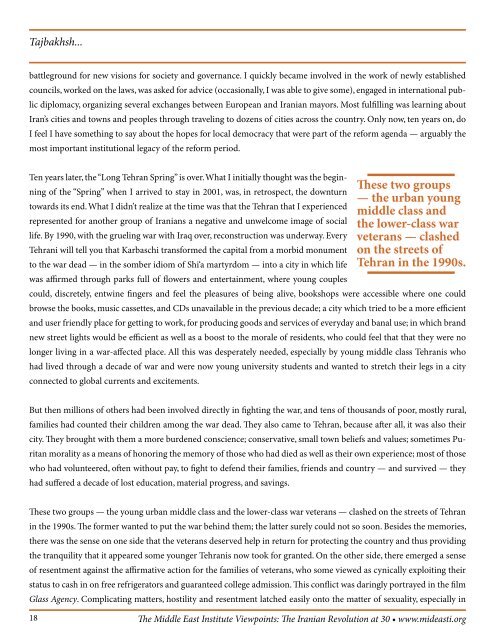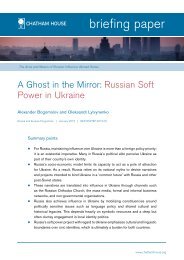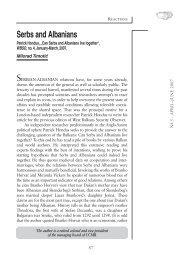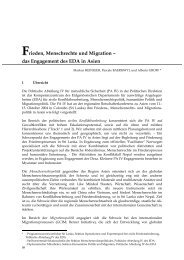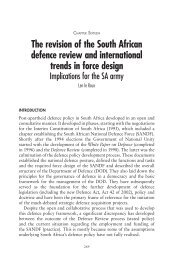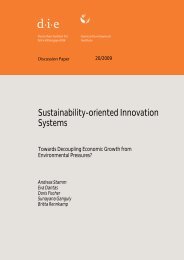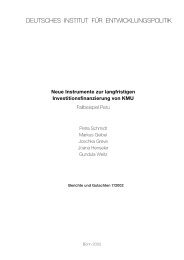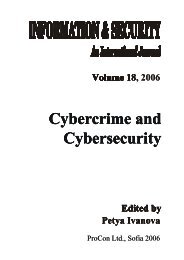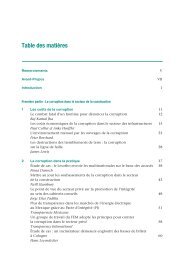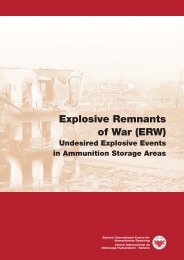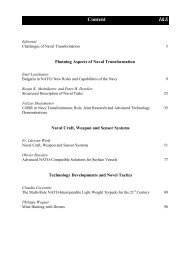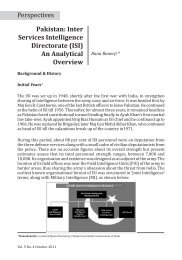The Iranian Revolution at 30
The Iranian Revolution at 30
The Iranian Revolution at 30
You also want an ePaper? Increase the reach of your titles
YUMPU automatically turns print PDFs into web optimized ePapers that Google loves.
Tajbakhsh...<br />
b<strong>at</strong>tleground for new visions for society and governance. I quickly became involved in the work of newly established<br />
councils, worked on the laws, was asked for advice (occasionally, I was able to give some), engaged in intern<strong>at</strong>ional public<br />
diplomacy, organizing several exchanges between European and <strong>Iranian</strong> mayors. Most fulfilling was learning about<br />
Iran’s cities and towns and peoples through traveling to dozens of cities across the country. Only now, ten years on, do<br />
I feel I have something to say about the hopes for local democracy th<strong>at</strong> were part of the reform agenda — arguably the<br />
most important institutional legacy of the reform period.<br />
Ten years l<strong>at</strong>er, the “Long Tehran Spring” is over. Wh<strong>at</strong> I initially thought was the beginning<br />
of the “Spring” when I arrived to stay in 2001, was, in retrospect, the downturn<br />
towards its end. Wh<strong>at</strong> I didn’t realize <strong>at</strong> the time was th<strong>at</strong> the Tehran th<strong>at</strong> I experienced<br />
represented for another group of <strong>Iranian</strong>s a neg<strong>at</strong>ive and unwelcome image of social<br />
life. By 1990, with the grueling war with Iraq over, reconstruction was underway. Every<br />
Tehrani will tell you th<strong>at</strong> Karbaschi transformed the capital from a morbid monument<br />
to the war dead — in the somber idiom of Shi‘a martyrdom — into a city in which life<br />
was affirmed through parks full of flowers and entertainment, where young couples<br />
could, discretely, entwine fingers and feel the pleasures of being alive, bookshops were accessible where one could<br />
browse the books, music cassettes, and CDs unavailable in the previous decade; a city which tried to be a more efficient<br />
and user friendly place for getting to work, for producing goods and services of everyday and banal use; in which brand<br />
new street lights would be efficient as well as a boost to the morale of residents, who could feel th<strong>at</strong> th<strong>at</strong> they were no<br />
longer living in a war-affected place. All this was desper<strong>at</strong>ely needed, especially by young middle class Tehranis who<br />
had lived through a decade of war and were now young university students and wanted to stretch their legs in a city<br />
connected to global currents and excitements.<br />
<strong>The</strong>se two groups<br />
— the urban young<br />
middle class and<br />
the lower-class war<br />
veterans — clashed<br />
on the streets of<br />
Tehran in the 1990s.<br />
But then millions of others had been involved directly in fighting the war, and tens of thousands of poor, mostly rural,<br />
families had counted their children among the war dead. <strong>The</strong>y also came to Tehran, because after all, it was also their<br />
city. <strong>The</strong>y brought with them a more burdened conscience; conserv<strong>at</strong>ive, small town beliefs and values; sometimes Puritan<br />
morality as a means of honoring the memory of those who had died as well as their own experience; most of those<br />
who had volunteered, often without pay, to fight to defend their families, friends and country — and survived — they<br />
had suffered a decade of lost educ<strong>at</strong>ion, m<strong>at</strong>erial progress, and savings.<br />
<strong>The</strong>se two groups — the young urban middle class and the lower-class war veterans — clashed on the streets of Tehran<br />
in the 1990s. <strong>The</strong> former wanted to put the war behind them; the l<strong>at</strong>ter surely could not so soon. Besides the memories,<br />
there was the sense on one side th<strong>at</strong> the veterans deserved help in return for protecting the country and thus providing<br />
the tranquility th<strong>at</strong> it appeared some younger Tehranis now took for granted. On the other side, there emerged a sense<br />
of resentment against the affirm<strong>at</strong>ive action for the families of veterans, who some viewed as cynically exploiting their<br />
st<strong>at</strong>us to cash in on free refriger<strong>at</strong>ors and guaranteed college admission. This conflict was daringly portrayed in the film<br />
Glass Agency. Complic<strong>at</strong>ing m<strong>at</strong>ters, hostility and resentment l<strong>at</strong>ched easily onto the m<strong>at</strong>ter of sexuality, especially in<br />
18 <strong>The</strong> Middle East Institute Viewpoints: <strong>The</strong> <strong>Iranian</strong> <strong>Revolution</strong> <strong>at</strong> <strong>30</strong> • www.mideasti.org


